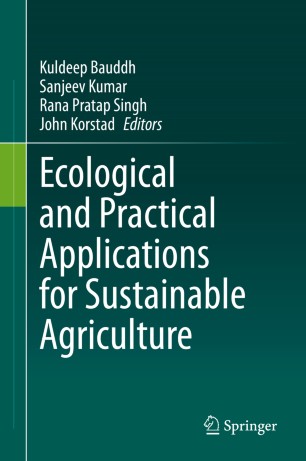

Most ebook files are in PDF format, so you can easily read them using various software such as Foxit Reader or directly on the Google Chrome browser.
Some ebook files are released by publishers in other formats such as .awz, .mobi, .epub, .fb2, etc. You may need to install specific software to read these formats on mobile/PC, such as Calibre.
Please read the tutorial at this link. https://ebooknice.com/page/post?id=faq
We offer FREE conversion to the popular formats you request; however, this may take some time. Therefore, right after payment, please email us, and we will try to provide the service as quickly as possible.
For some exceptional file formats or broken links (if any), please refrain from opening any disputes. Instead, email us first, and we will try to assist within a maximum of 6 hours.
EbookNice Team

Status:
Available4.8
23 reviewsRampant industrialization, urbanization, and population growth have resulted in increased global environmental contamination. The productivity of agricultural soil is drastically deteriorated and requires a high dose of fertilizers to cultivate crops. To ensure food security, farmers are compelled to apply excess chemical fertilizers and insecticides that contaminate soil, air, and water. Heavy loads of chemical fertilizers not only degrade the quality of agricultural land but also pollute water and air. Use of chemical fertilizers also accelerate the release of greenhouse gases like nitrous oxide and methane along with nutrient runoff from the watershed in to lower elevation rivers and lakes, resulting in cultural eutrophication.
Farming practices globally in developed, developing, and under-developing countries should utilize and promote sustainable methods through viable combined environmental, social, and economic means that improve rather than harm future generations. This can include use of non-synthetic fertilizers like compost, vermicompost, slow-release fertilizers, farmyard manures, crop rotations that include nitrogen-fixing legumes. Organic fertilizers like compost and vermicompost improve soil properties like texture, porosity, water-holding capacity, organic matter, as well as nutrient availability.
The purpose of this book is to document the available alternatives of synthetic fertilizers, their mode of action, efficiency, preparation methodology, practical suggestions for sustainable practices, and needed research focus. The book will cover major disciplines like plant science, environmental science, agricultural science, agricultural biotechnology and microbiology, horticulture, soil science, atmospheric science, agro-forestry, agronomy, and ecology. This book is helpful for farmers, scientists, industrialists, research scholars, masters and graduate students, non-governmental organizations, financial advisers, and policy makers.